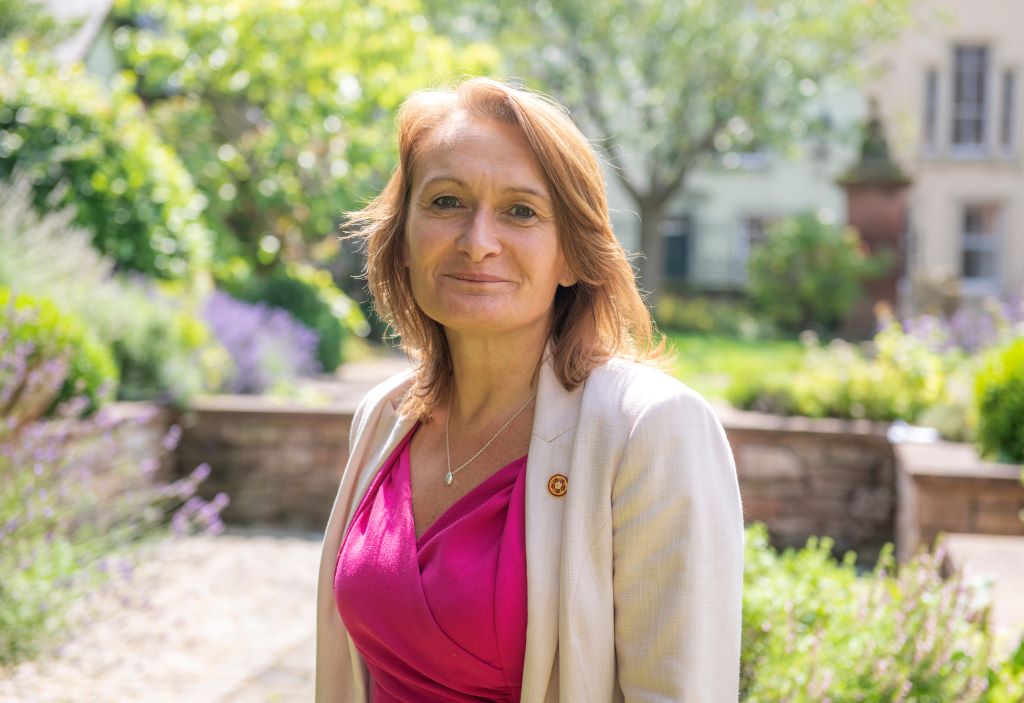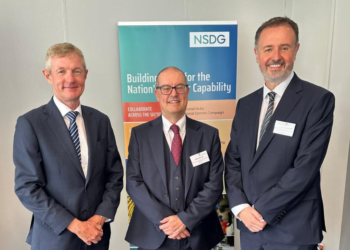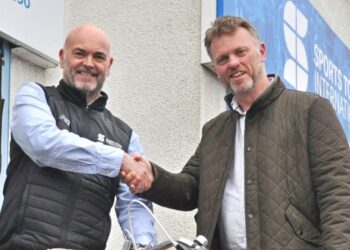
The county’s only university is a remarkable example of an institutional success story and an integral partner in every aspect of Cumbria’s growth, resilience and vision for the future.
Since its foundation in 2007, the University of Cumbria has become a destination for learners of all ages from all over the UK and beyond and has grown by 25% over the last five years.
With a strategic vision to meet the needs and aspirations of the people and places across Cumbria’s communities and industries, the university is a driving force in the development of the county’s economy, development and infrastructure.
From addressing skills shortages in key industries to increasing participation in higher education and working in partnership with public sector organisations, the university is transforming communities, and providing opportunities to people and businesses that weren’t available 20 years ago.
Led by vice chancellor Professor Julie Mennell, the university’s relevance and impact to the region has been recognised and reinforced further, and at a national level with over £65m funding through the Borderlands Growth Deal, Carlisle Town Deal and Barrow Town Deal.

The funding will see the university’s flagship campus in Carlisle transformed and relocated to the Citadels area of the city and a new campus site in Barrow.
Both developments aim to increase participation and access to higher education, address high-level skills and productivity needs across Cumbria and the wider region, and make a demonstrable impact to place vibrancy and to local economies, communities and culture.
Professor Mennell, who is also a Deputy Lieutenant of Cumbria, Chair of Carlisle Youth Zone and a board member of the Cumbria Local Enterprise Partnership said: “The main priority for the university is to contribute to the aspirations of people, places, communities and their health and wellbeing.
“We are delivering opportunities that meet the needs of a diverse economy. Our students study on campus, off campus, in the workplace, through our partners and are full time, part time, young and mature.
“Addressing the demand for skilled workers in our advanced manufacturing and nuclear sectors, providing a labour supply to meet the growing needs of our visitor economy and training the NHS professionals of the future are all part of the university’s commitment to Cumbria and beyond.
“Ensuring those training and career opportunities are accessible to local people as well as those from further afield, including internationally, is central to our vision.”
The university is the largest provider of paramedic apprenticeships in the UK, supporting over 1,000 students across the country, and provides more than 2,200 degree apprenticeships in areas including project management, nuclear industry roles and national contracts with major employers including Sellafield and BAE Systems.
A partnership with Imperial College London is helping to recruit and train doctors and medical professionals that are desperately needed across the NHS.
The university’s investment in the Barrow campus will support the ongoing expansion of BAE Systems, which aims to recruit and train an additional 6,000 employees by 2030.
The expansion of BAE will have a significant impact on the wider economy, with supply chain businesses, hospitality, housing and infrastructure projects all requiring skilled labour and training to meet the demands of a growing workforce.
Professor Mennell said: “The investment in Barrow is a great example of the university’s role as a strategic partner in developing and celebrating Cumbria’s profile as a place where businesses can thrive and supports a diverse range of learning and career opportunities.
“There have been some bumps on the road and no doubt more to follow. This is a long-term strategy and will have a visible and lasting impact on the region.”

The vice-chancellor’s journey to Cumbria began in Middlesbrough where she excelled at sports during her youth, taking a year out after college to concentrate on a promising athletics career before studying maths and physics at the University of Leeds.
Following university, she became a police officer in Lancashire, where she developed a passion for working with communities and later decided to challenge herself further with a PhD in applied physics engineering at Teesside University.
After completing her PhD, Professor Mennell went on to work in the university’s school of science and technology as director of the forensics department, leaving in 2006 as an assistant dean.
In 2006 at the age of 36 she was appointed dean of applied sciences at Northumbria University and in 2010 became deputy vice chancellor (development) and deputy vice chancellor (academic) for the University of Sunderland.
Professor Mennell’s work in Sunderland involved leading on portfolio and partnership development, academic and research provision, student experience and outcomes.
The role gave her valuable experience and insight which has been central to leading the growth and development of the University of Cumbria, where she has been vice chancellor since 2016.
The variety of roles and places she has worked in has developed an ambition to create impactful changes for Cumbria.
Professor Mennell said: “Collaborative working is key – the university works in partnership with local authorities, the government and across tourism, farming and industrial sectors to understand and support the delivery of shared objectives.
“I knew Cumbria was the ideal place to be part of something transformative. Not least in ensuring young people in Cumbria have a very positive outlook on what is possible, from learning and lifestyle to the environment.
“We are surrounded by world class assets and the county is unique in what it has to offer. Attracting more people to come and experience this is at the centre of our vision for the county’s future, and we are delivering opportunities and developing initiatives that support the needs and aspirations of Cumbria.”
The university currently has c.15,000 students enrolled, of which over 50% are completing their studies in the workplace, meaning many are actively contributing to the county’s economy and responding to the skills-gap challenges facing many of the county’s businesses.
The long-term commitment and ambition to achieve transformational change requires tenacity, resilience and strong leadership.

“I don’t have any superpowers, I have super colleagues, a brilliant and supportive husband and family, and try to maintain a positive attitude towards any challenge presented.
“My proudest moments are always the graduation ceremonies, where I get to see the impact the university has on students and their families, and it is such a privilege to lead this institution.
“The potential for Cumbria is huge, and we will continue to work tirelessly to support the growth and aspirations of this county and its people,” said Professor Mennell.
With the ongoing £65 million project helping transform the university’s facilities and assets across its Carlisle and Barrow campus locations; a joint medical school with Imperial College London; diverse offerings from the Lancaster and London campuses outside of the county, the University of Cumbria is punching above its weight in every conceivable measure.
This is not only exceeding the confidence and expectations of regional stakeholders and national government, but delivering real change and new opportunities for future generations of people, places and employers across the region.










